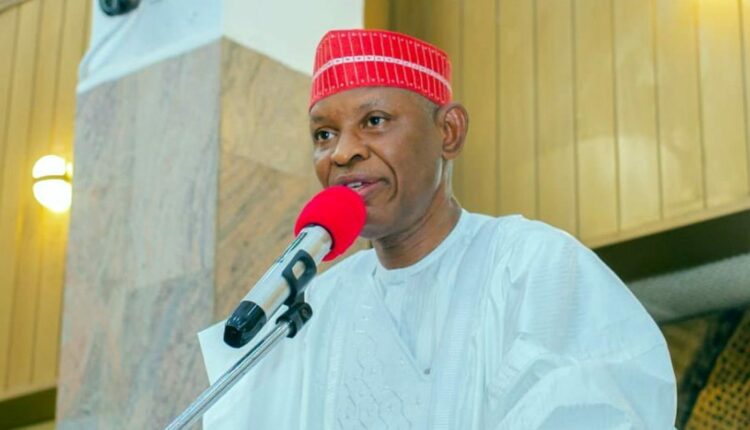”Our implementation of regulations that mitigate effects of sand mining, drilling of boreholes safeguard natural resources”-Gov Yusuf
Kano State Government says it has implemented regulations to mitigate the adverse effects of sand mining and excessive drilling of boreholes, safeguarding the natural resources for future generations.
The state governor, Abba Kabir Yusuf stated this on Monday during the Soil Value Project National Launch in Kano.
Gov. Yusuf represented by Kano ACReSAL Project Coordinator, Dr. Dahir Muhammad Hashim said the state government recognises the importance of soil values and their impact on sustainable development considering the strategic position of Kano in agricultural and commercial activities in the West Africa sub-region.
‘’Our commitment to promoting and enhancing agriculture speaks volumes of our collective resolve for food security in northern Nigeria, and by extension West Africa, ”Gov. Yusuf said.
”We are grateful for the support and expertise provided by our partners , including The Netherlands Directorate of International Cooperation, With your support, we can harness the power of innovation and knowledge exchange to address the challenges facing our soil resources and pave the way for a more resilient and prosperous future.”

”Already Kano state government is spending millions of dollars to upgrade existing earth dams and sustained reservoirs in most parts of its arid regions.”
According to the governor, in recognising the critical role of soil and water quality in agricultural productivity, the Kano state government has established a state-of-the-art soil and water laboratory at Yusuf Maitama Sule University, Kano.”
”The facility serves as a hub for research, testing and analysis of soils enabling us to make informed decisions and implement evidence-based policies to improve soil health and water management practice.”
Read Also:Environmental Challenges: ACReSAL decries activities of sand miners in Kano
SolaceBase reports that the program is been implemented by a consortium of three institutions: the International Fertilizer Development Centre -IFDC (lead)the Netherlands Development Organisation—SNV and Wageningen University- WUR supported by Knowledgeable partners including AGRA, ICRAF, IITA, IWMI and ISRIC in collaboration with national partners(technical services, projects and programs, farmer organisations, private sector, Women and Youth Groups, etc)
The Country Director of the International Fertilizer Development Center (IFDC), Yusuf Dramani while delivering an opening address said that the soil value program funded by the DGIS from 2024 to 2033 will be for the sustainable management of soil fertility and soil health by increasing food production and improving the resilience of smallholder farmers to climate change and its shock in the Sahel (Bukina Faso, Mali, Niger and Northern Nigeria).
“Over the next 10 years, Soil Values will ensure that sustainable soil fertility management will be a mainstay of Sahelian and Guinea Savanna farming systems, improving the soil fertility and productive capacity of 2 million hectares of farmland in the Sahel and the resilience and well-being of 1.5 million small-scale food producers, particularly women, in four implementation countries: Burkina Faso, Mali, Niger, and Northern Nigeria.
“Soil Values will not be a stand-alone program, but will work through existing projects, programs, policies, organizations and national programs.
“This leverage will be instrumental in scaling delivery of innovative solutions and technologies to promote soil management, bolster economic value for soil resources and enhance agricultural productivity” he stated.



Comments are closed.